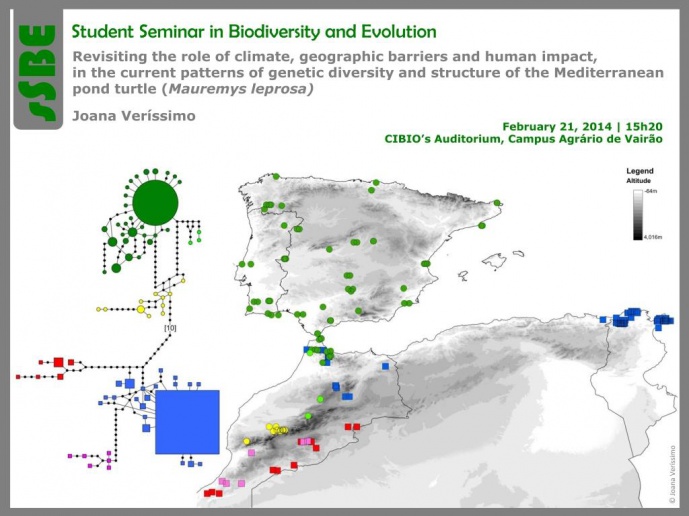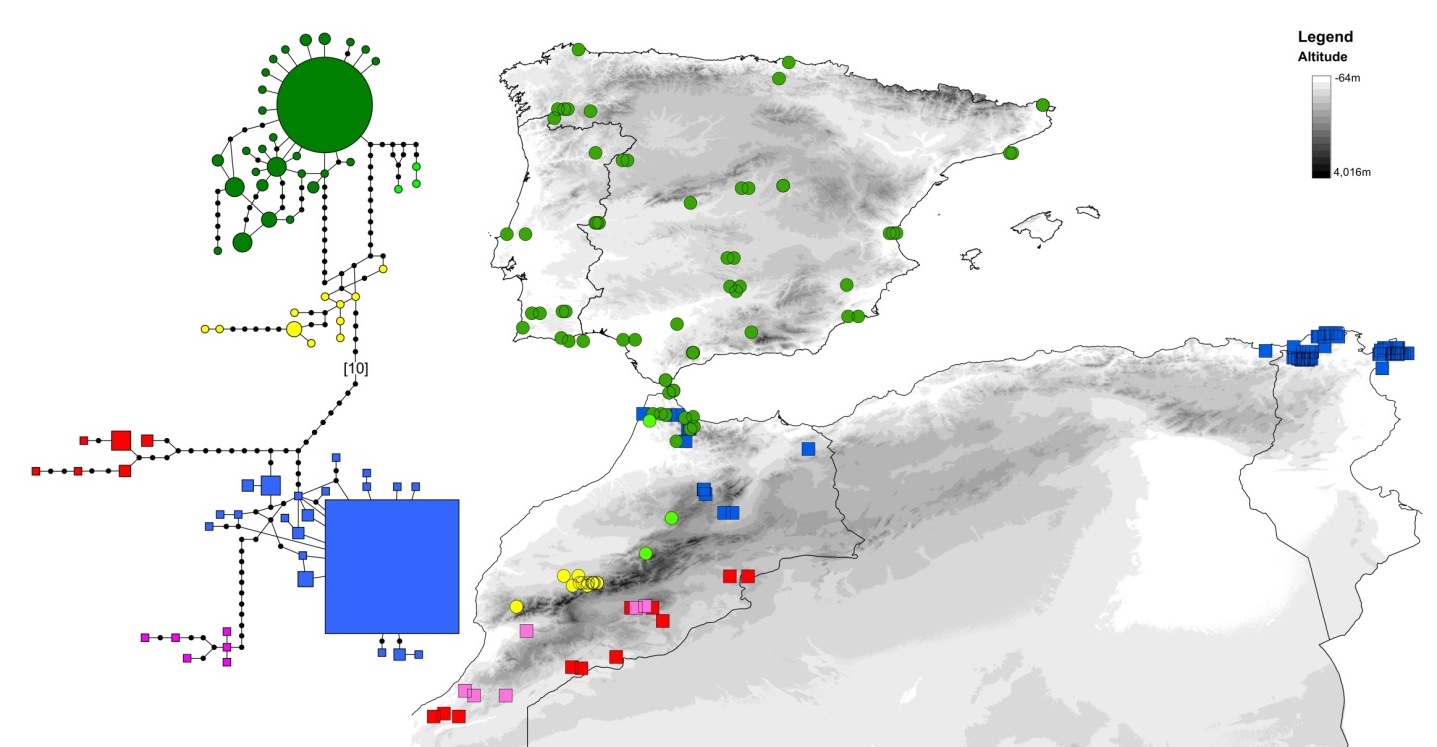REVISITING THE ROLE OF CLIMATE, GEOGRAPHIC BARRIERS AND HUMAN IMPACT, IN THE CURRENT PATTERNS OF GENETIC DIVERSITY AND STRUCTURE OF THE MEDITERRANEAN POND TURTLE (Mauremys Leprosa)

STUDENT SEMINAR IN BIODIVERSITY AND EVOLUTION

Climate oscillations during the Quaternary period have strongly influenced the distribution and genetic diversification of species occurring in the Mediterranean basin. Furthermore, geographic barriers such as the Atlas Mountains in Morocco and the Strait of Gibraltar have played a crucial role on the biogeographic history of some Mediterranean taxa. Finally, human impacts (e.g. translocations, pet and food trade) could also shape current patterns of genetic diversity and structure of some species.
The Mediterranean pond turtle, Mauremys leprosa, occurs widely throughout the Iberian Peninsula and the Maghreb region. By combining mitochondrial and microsatellite markers I aim to get insights into the effects of past climatic oscillations, geographic barriers and human impact in shaping current patterns of genetic diversity and structure in this Mediterranean taxa.
Joana is currently enrolled in the Master’s Course in Biodiversity, Genetics and Evolution at the Faculty of Sciences, University of Porto, under the supervision of José Teixeira and Guillermo Velo-Antón [BIODESERTS Group]
Image credits: Joana Veríssimo